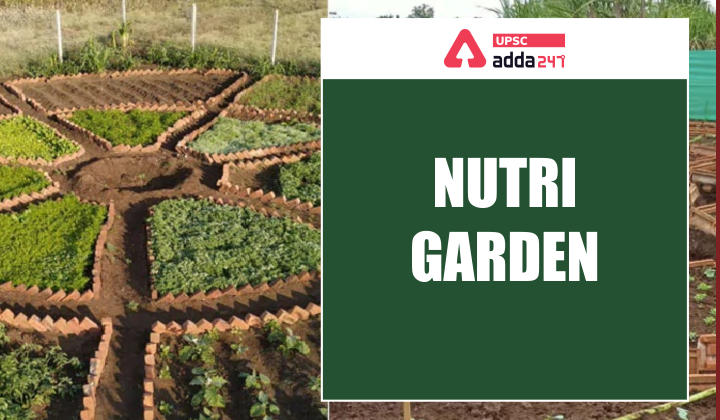Table of Contents
Relevance
- GS 2: Issues relating to poverty and hunger.
Context
- Woman and Child Development minister inaugurated Nutri Garden at All India Institute of Ayurveda to mark the beginning of Poshan Maah – 2021.
Key points
- It will provide knowledge about how the ancient wisdom of Ayurveda intervention can be effectively utilized to address the nutrition requirement of the nation.
- The Minister of State had highlighted the nutritional and medicinal importance of few Ayurvedic herbs like Shigru, Shatavari, Ashwagandha, Amala, Tulasi, Haldi.
- He also emphasised on importance of promoting evidence-based Ayurveda nutrition practices for holistic wellbeing of mother and child.
What are Nutri Gardens?
- A nutri-garden project is a cost-effective model to grow nutrient-rich crops for personal or community consumption to promote good health and well-being.
- It helps tackle both under-nutrition and over-nutrition by adopting a sustainable life cycle approach.
- Nutri Garden Odisha is one such successful model.
Process of making a Nutri Garden
- A Nutri Garden project must have children as the primary participants, and should be executed in a phased manner.
Phase 1
- Nutri Garden in Anganwadi: The project should be undertaken in a few government schools and Anganwadi Centres (AWCs) across a district.
- It will encourage local availability of diversified vegetables for mid-day meals.
- Its successful implementation would require convergence among the different departments namely, agriculture, horticulture and other related functionaries.
- It will enhance nutritional literacy among students, and make them understand the basis of choice of crops (based on season and topography) and their nutritional content.
- Based on the outcomes and learning from the pilot, the project should further be scaled-up to include all government schools in the district.
Phase 2
- Under this phase, the project could be extended to private schools, which could adopt the culture of nutri-gardens.
- Learning by doing approach: Schools should create nutri-clubs as part of extra-curricular activities and promote organic farming as part of the curriculum.
Benefits of Nutri Gardens
- It promotes safe and healthy eating habits among students.
- It provides nutritious food that can address micro & macro nutrient deficiencies and hidden hunger in children.
- It provides better use of vacant land lying idle at the schools and AWCs (Aangan Waadi Centres).
- It also ensures an inexpensive, regular and handy supply of fresh vegetables, which are basic to nutrition.
- It brings diversification in the menu of mid-day meals at government schools and AWCs.
- It turns children into catalysts who promote awareness and behavioural changes in society.
Challenges
- Lack of availability of vacant land, water and other necessary infrastructure to create a nutri-garden.
- Insufficient funds from the administration.
- Unmotivated staff at AWCs and schools due to their existing workload and no absence of incentives
- Difficulty in bringing government functionaries on a single platform to effectively implement the concept.



 TSPSC Group 1 Question Paper 2024, Downl...
TSPSC Group 1 Question Paper 2024, Downl...
 TSPSC Group 1 Answer key 2024 Out, Downl...
TSPSC Group 1 Answer key 2024 Out, Downl...
 UPSC Prelims 2024 Question Paper, Downlo...
UPSC Prelims 2024 Question Paper, Downlo...
